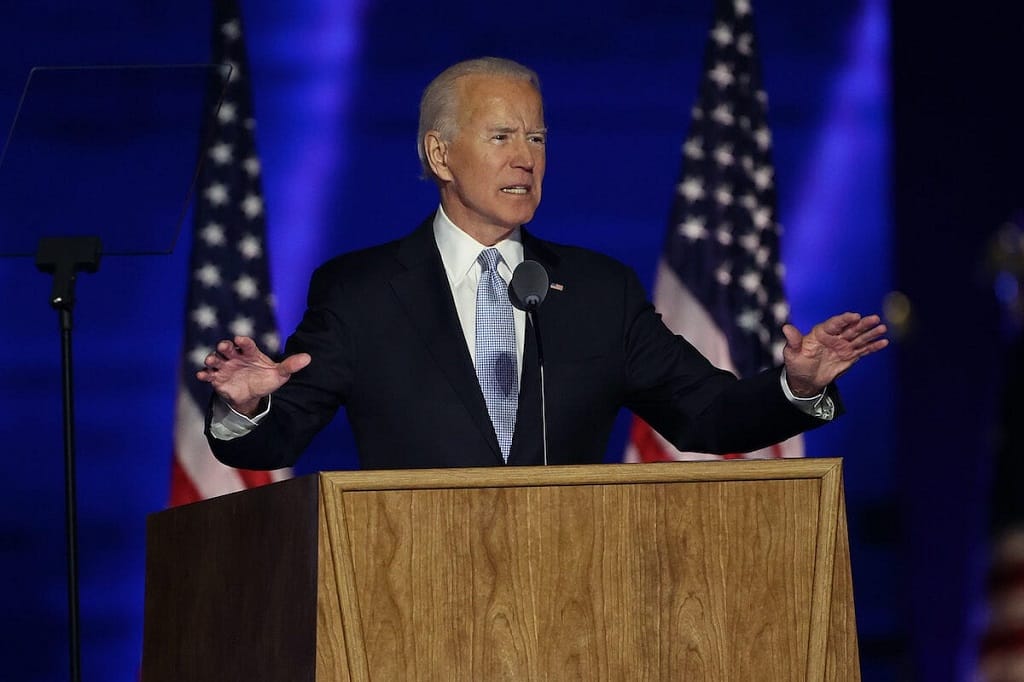Biden Sets Goal Of 2030 To Provide Affordable Broadband Access For All Americans
March 31, 2021 – President Joe Biden unveiled his administration’s next major spending plan Wednesday, which includes $100 billion toward a target goal of providing all Americans with affordable access to broadband by 2030. The broadband promise makes up a large chunk of the $2.3-trillion “American

March 31, 2021 – President Joe Biden unveiled his administration’s next major spending plan Wednesday, which includes $100 billion toward a target goal of providing all Americans with affordable access to broadband by 2030.
The broadband promise makes up a large chunk of the $2.3-trillion “American Jobs Plan,” spent incrementally over eight years.
The plan would prioritize funding for “broadband networks owned, operated by, or affiliated with local governments, non-profits, and co-operatives,” and sets aside specific amounts for broadband infrastructure projects on tribal lands. Some Republican lawmakers have previously said municipalities that build their own networks are squeezing out competition and proposed a bill that would outlaw the practice.
It is unclear if the $100 billion broadband funding refers to the Accessible, Affordable Internet for All Act, which was incorporated into the Leading Infrastructure for Tomorrow’s (LIFT) America Act, a large infrastructure bill that also seeks $100 billion in broadband funding, introduced in the House on March 11.
The White House said it sees broadband as essential as power, calling the internet “the electricity of the 21st century” and comparing this plan to the 1936 Rural Electrification Act, which funded electric companies across the country to build electric infrastructure to every area in the United States still lacking a connection to power.
While access to broadband is an issue for unserved areas, Biden emphasized that affordability is another important challenge to solve. “We’ll make sure every single American has access to high-quality, affordable, high-speed internet, for businesses, for schools,” he said. “When I say affordable, I mean it. Americans pay too much for internet service,” he said.
The White House is looking at long-term answers to affordability. “Continually providing subsidies to cover the cost of overpriced internet service is not the right long-term solution for consumers or taxpayers,” the administration said in a statement.
Biden’s plan also sets its sight on better competition by lifting barriers for municipal networks and rural electric co-ops to compete with private providers, and greater transparency by requiring providers to disclose their broadband prices.
The legislation would significantly expand or modernize infrastructure in many other areas as well, including roads and highways, bridges, public transit, railroads, airports, inland waterways, various buildings including commercial, homes and colleges, and water and power infrastructure.
Other areas of focus of the plan include improving wages and benefits for “essential home care workers,” investing in research and development, revitalize manufacturing inside the United States, and ensuring the opportunity for American workers to organize, join unions and bargain with employers.
The plan places a large focus on what the White House called “disadvantaged” and “distressed” communities and inequities, with funding set aside for programs in those specific areas.
“This is about opening opportunities for everybody else,” Biden said of wealthy Americans during a press conference Wednesday announcing the infrastructure plan. “Here’s the truth: We will all do better when we all do well,” he said. “Today, I’m proposing a plan for the nation that rewards work, not just rewards wealth. It builds a fair economy that gives everybody a chance to succeed, and its going to create the strongest, most resilient, innovative economy in the world,” he said.
To cover the costs of the $2 trillion plan, it would increase the corporate tax rate to 28 percent and establish a global minimum tax for multinational corporations, targeting the use of tax havens and shifting profits from America to other countries.
Biden called on Republicans to join the effort, referring to past bipartisan work on infrastructure, including the transcontinental railroad and the interstate highway system, both of which were done by Republican presidents.
The American Jobs Plan is part one of a two-part infrastructure proposal, with part two—the “American Families Plan—due sometime in April.









Member discussion